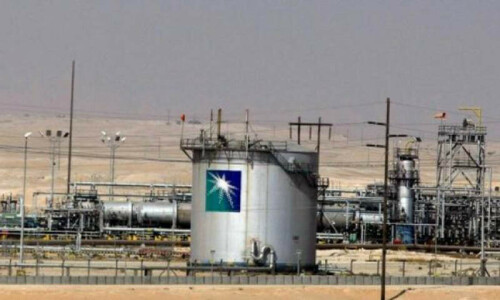ISLAMABAD: The National Electric Power Regulatory Authority (Nepra) on Friday notified Rs7.90 per unit additional fuel cost adjustment (FCA) across the country (for all distribution companies including K-Electric) with a cumulative financial burden of about Rs132 billion for recovery from consumers in July bills.
In doing so, the regulator departed from its routine practice by partially advancing KE’s monthly FCA implementation for May consumption that would sort of ensuring almost uniform FCA across the country and stagger a heavy price for KE consumers in two installments.
During the public hearing, Nepra chairman Tauseef H. Farooqui declined the KE demand for merging both April and May FCAs saying it would overburden consumers.
The regulator said it had already allowed Rs5.48 per unit FCA to KE for electricity consumed in April to be recovered in July bills. In the meanwhile, it also approved Rs9.52 per unit FCA for electricity consumed in May and to be recovered in two parts in July and August bills.
54pc of electricity in May produced from cheaper domestic resources
“Out of total FCA of Rs9.51 80/kWh, an amount of Rs2.6322/kWh shall be charged in July and Rs.6.866/kWh in August bills”, Nepra said in a notification.
As such, the KE consumers would now pay Rs5.48 per unit FCA for April and Rs2.63 per unit partial FCA for May consumption. This will result in a total FCA of Rs7.91 per unit to be charged to consumers with a combined impact of about Rs20bn in July. The remaining Rs6.89 per unit out of Rs9.52 per unit would be billed to consumers in August with a financial impact of about Rs9bn.
Discos tariff hike
Meanwhile, the regulator also notified a Rs7.90 per unit additional FCA for ex-Wapda Distribution Companies (Discos) to be recovered from consumers in July bills with a financial impact of Rs113bn.
The Central Power Purchasing Agency (CPPA), on behalf of all ex-Wapda Discos, had sought about 134pc increase in their fuel price adjustment at the rate of Rs7.9647 per unit for electricity sold in May. It said the consumers were charged a reference fuel cost of Rs5.932 per unit in May, but the actual cost turned out to be Rs13.90 per unit, hence an additional charge of about Rs7.96 to consumers.
The regulator, however, notified Rs7.90 per unit additional FCA after minor disallowances. “This increase shall apply to all except lifeline consumers of Discos,” the notification read.
Hydropower generation surges
The higher electricity rates would be charged to all consumers in the coming billing month (July) except to those using less than 50 units per month. This was despite the fact almost 54pc of power generation came from cheaper domestic resources with static prices.
Data showed that the share of domestic fuel resources in overall power generation improved to 54pc in May when compared to 50.58pc in April and 45pc in March. The share of hydropower supply in the overall basket improved to 24.5pc in May against 18.55pc in April and 16.35pc in March. Hydropower has no fuel cost.
The share of nuclear power dropped significantly to about 13pc in May against 17.4pc in April mainly because of maintenance of one of its large plants. Yet, nuclear power maintained its second place among domestic fuels.
The second-biggest contribution to the overall power supply of about 23pc came from imported RLNG in May against 19.4pc in April and March. The share of domestic gas in power generation slightly increased to 10pc in May from 9.85pc in April.
The share of coal-based power plants came down to13.8pc in May from 16.74pc in April and 25pc in March because of low coal stocks amid financial limitations of power producers and higher global prices. In January and February, coal-based generation had contributed 33pc and 32pc to the overall power supply.
The cost of power generation from domestic gas increased to Rs10.12 per unit in May compared to Rs8.4 per unit in April and Rs7.75 per unit in March. Three renewable energy sources — wind, bagasse and solar — together contributed 6.5pc power supply.
With a share of 9pc in the overall power supply, the most expensive power generation came from furnace oil-based plants at Rs33.67 per unit in May.
Published in Dawn, July 8th, 2022












































